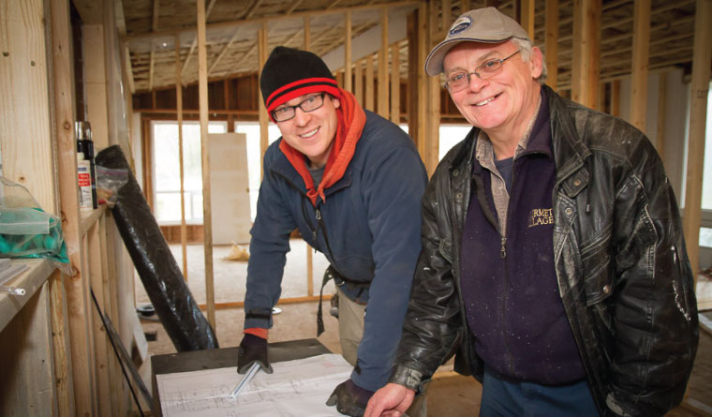
As plans unfold for about a billion dollars to be spent on a new light-rail transit system in Toronto, Peter Frampton imagines directing a chunk of that, say a million dollars, to social enterprises contracted to feed the construction workers. This would double the capacity of three or four social enterprises which would in turn double their impact, Peter tells Axiom News.
Peter is one of a number of people backing a June 16-17 summit in Vancouver that is intended to make social-impact purchasing more of a reality in Canada. The transit construction contracts with social enterprises illustrate the possibilities that could manifest as this intent is realized.
Peter’s commitment to accelerating social-impact purchasing lies in that, as the executive director of the Toronto-based Learning Enrichment Foundation, he’s seen what social enterprises can do.
“Social enterprise is not always the best tool in our belt, but it’s surprisingly often the only tool if one is really going to reach into community and help people change their lives and turn their lives around,” Peter says.
Developing and running a social enterprise is extremely hard work. “It’s hard enough to launch a business, let alone a business that is going to be changing lives.”
But it’s not impossible work and social enterprise successes are numerous in Toronto and other parts of the country. What makes them powerful is their independence and how they allow people to react to and work with others in a very immediate and real way, with accountability to the marketplace, Peter says.
In many ways, the social enterprise sector is being increasingly bolstered in Canada as some provinces introduce supportive government policies while financial institutions offer new supporting finance tools.
Another important part of the equation that still needs attention, however, is that of purchasing. That is what this upcoming event, the Buy Social Canada Summit, is more specifically aiming to address.
|
The referenced media source is missing and needs to be re-embedded.
|
“This is building on a lot of work that a lot of people have done in terms of building successful social enterprises and successful social-purpose businesses,” says David LePage, principal of Accelerating Social Impact CCC and a co-organizer of the event.
“A whole lot of work has gone into creating social-impact financing to support the development and the growth of those businesses, so completing that circle is creating the demand for the products and services.”
The summit is timely in that recent research reveals a key barrier to social-impact purchasing is the disconnect between purchasers and suppliers.
“We’ve got suppliers, whether they’re small businesses, local businesses, social enterprises, social-purpose business, co-ops, all kind of businesses that are putting social values into their production,” David says.
“And then there are a whole lot of purchasers who are trying to figure out how do we buy stuff and actually create some social value.
“So the summit is really the beginning of how do we create a discussion between these parties that want to be doing the same things.”
A progressive procurement program TELUS has introduced over the last year and a half demonstrates what’s possible with respect to procuring in a socially conscious way, says Corinne Campney, director of community affairs for TELUS, which is a sponsor of the summit. The Diversity Supplier Program has seen tremendous success targeting enterprises that are 51-plus per cent owned by one of three minority groups.
The program has resulted in TELUS purchasing about $13 million worth of services and supplies from these groups in its first year of operation. A key learning was that it didn’t take special terms and conditions or much extra effort, Corinne says. “These groups won the business on their merits.”
The role of the Diversity Supplier Program was to highlight the opportunities to purchasers as well as train suppliers to understand and effectively work through the complex procurement process of large purchasing agents.
“There are a lot of myths both about the quality and scale-ability of small businesses, and about the purchasing habits and mindset of large purchasers,” Corinne says.
“This discussion across the three sectors is really important.
“We’re a small country and we have a fairly small private sector relatively speaking and we need to find ways of supporting one another that either meet commercial terms or are a part of a community investment strategy.
“This (summit) is just one way of our exploring where (social enterprise) fits, and that may be as a commercial project with a focus to go a little further to help non-profit social enterprises get on the ladder to being a supplier.”
To learn more about the Buy Social Canada Summit, click here.
Related Stories:
Buy Social Summit Won’t Be Prescribing Answers
Is There an Upswing in ‘Humanizing’ Business?
Groundwork Laid for Executing Canada’s Buy Social Brand at the Regional Level
You can comment on this story below, or e-mail michelle(at)axiomnews.ca.





